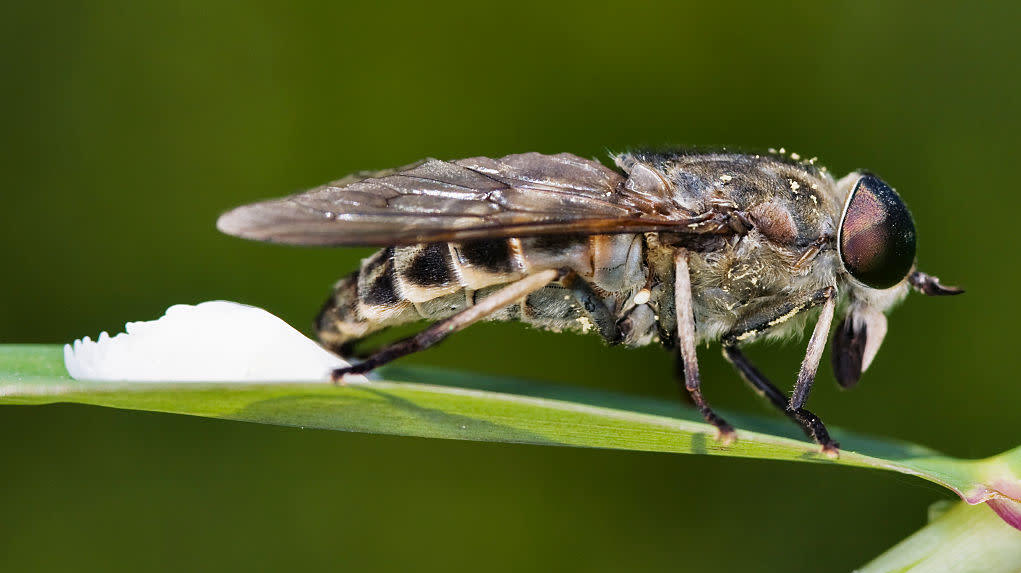He Died Doing What He Loved: Fossilized Fly Found With A Full Belly
He died with a full belly, in his own bed, surrounded by beautiful women. At least, that's what I can ascertain from a recent University of Vienna study, in which researchers found a fossilized fly with a "bulging abdomen" still full of the fly's last supper. Clear hearts, full fly, can't lose.
Upon further inspection, the researchers found that the fly's stomach was, in fact, full of pollen from different plants. The pollen was then used to reconstruct the fly's ancient environment, as well as the fly's feeding behavior. But it also helped clarify the ancient fly's surprising role in pollination. The study explains that, while we typically think of bees and butterflies as pollinators, flies also like to ride the pollination train. "The rich pollen content we discovered in the fly's stomach suggests that flies were already feeding and transporting pollen 47 million years ago and shows it played an important role in the pollen dispersal of several plant taxa," wrote University of Vienna researcher Fridgeir Grímsson. "Flies were major pollinators in ancient (sub-)tropical equivalent ecosystems and might even have outshined the bees."
Finally, the extracted pollen helped researchers identify the fly's main feeding area near the Messel Pit Fossil Site, indicating that the fly mostly fed on plants growing around a single forest margin. Grímsson explains: "It is likely that the fly avoided long-distance flights between food sources and sought pollen from closely associated plants." I can usually relate to the humble fly, but not this time—I'm happy to drive an hour or two for a standout snack.
